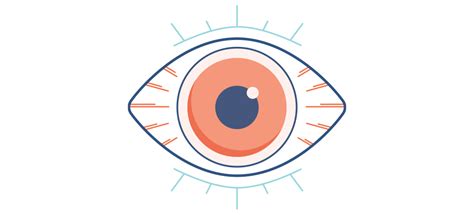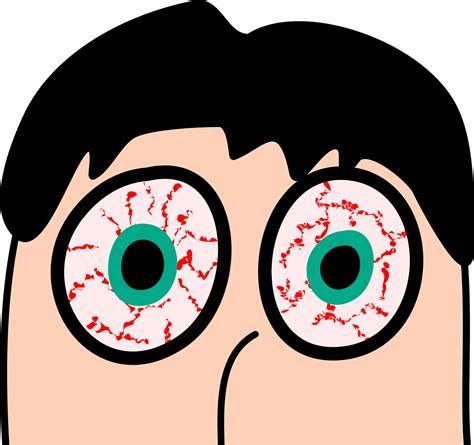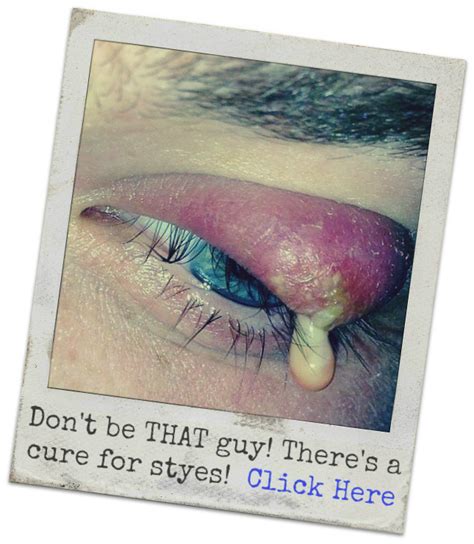Experiencing dry eyes upon waking up is a common issue that can be caused by several factors. One of the reasons could be that your eyelids are not staying closed tightly during sleep, which is known as nocturnal lagophthalmos. Another reason could be that your eyes are not producing high-quality tears to lubricate them, or you may not be producing enough tears altogether.
How do I stop waking up with dry eyes?
If you suffer from morning dry eye, there are several treatments available depending on the underlying cause. One option is to use sleeping masks, which can help keep your eyes moist throughout the night. Lubricating eye drops and ointments applied before bed can also be effective in reducing dryness. Another solution is to use eyelid weights, which can help keep your eyes closed while you sleep, preventing them from becoming dry.
Additionally, using a humidifier in your bedroom can help create a more humid environment, which can reduce the likelihood of dry eyes in the morning.
Why are dry eye symptoms worse in morning?
If you wake up with itchy and scratchy eyes, dry eye syndrome could be the culprit. This condition occurs when your tear glands are blocked or not producing enough tears and oils to keep your eyes moist. It can cause discomfort and even affect your vision if left untreated. If you’re experiencing these symptoms, it’s important to see an eye doctor who can diagnose and treat dry eye syndrome.
How do you know if dry eyes are serious?
If you are experiencing dry eyes, it is important to pay attention to the severity of your symptoms. Mild cases of dry eyes can often be treated with over-the-counter eye drops or lifestyle changes, such as taking breaks from screens or using a humidifier. However, if your symptoms persist or worsen, it may be a sign of a more serious underlying condition, such as an autoimmune disorder or a blocked tear duct. Other symptoms to watch for include redness, pain, sensitivity to light, and blurred vision.
If you are concerned about your dry eyes, it is best to consult with an eye doctor for a proper diagnosis and treatment plan.
Is dry eye a symptom of diabetes?
Research has revealed that a significant 54 percent of individuals with diabetes experience dry eye, which is also referred to as dry eye syndrome (DES), dry eye disease, or keratoconjunctivitis sicca. Although this condition may seem benign, it should be treated with the same level of concern as any other diabetes-related eye complication. In reality, the two are frequently linked.
What are the early signs of diabetes in eyes?
The early signs of diabetes in eyes include blurred vision, fluctuating vision, double vision, and difficulty seeing at night. Diabetic retinopathy, a condition that damages the blood vessels in the retina, is a common complication of diabetes that can lead to vision loss if left untreated. Other eye problems associated with diabetes include cataracts and glaucoma. Regular eye exams are crucial for detecting and managing these conditions early on.
It is important for individuals with diabetes to maintain good blood sugar control, as high blood sugar levels can worsen eye problems. Additionally, lifestyle changes such as quitting smoking and maintaining a healthy diet and exercise routine can also help prevent or manage diabetes-related eye complications.
How do diabetic eyes feel?
Diabetes can cause swelling of the eye lens, which can result in blurry vision. When your blood sugar levels fluctuate rapidly from low to normal, it can alter the shape of your eye’s lens and cause vision impairment. However, once your blood sugar stabilizes, your vision should return to normal. This is just one of the potential effects of diabetes on your eyes, highlighting the importance of managing your blood sugar levels to prevent complications.
What are the signs of low blood sugar in eyes?
If you find yourself struggling with vision issues, it’s possible that a drop in blood sugar levels could be the cause. A case report from the past found that blurred vision was the most prevalent eye-related symptom, affecting 73% of participants in the study. Other symptoms included dimness in vision, which affected around 45% of participants, and black spots, which affected 37%.
What do diabetic floaters look like?
If you’ve ever noticed small specks or shapes floating around in your vision, you may be experiencing what’s known as floaters. These tiny clumps of gel or cells are found inside the vitreous, a clear jelly-like fluid that fills the inside of your eye. Floaters can take on various shapes, including dots, circles, lines, clouds, or cobwebs. They may be more noticeable when viewed against a plain background, like a blank wall.
What does it feel like when your sugar drops?
Experiencing hypoglycemia can be a scary and potentially dangerous situation. It’s important to recognize the early warning signs, such as feeling hungry, trembling, or sweating. These symptoms can progress to confusion and difficulty concentrating in more severe cases. In the most severe cases, loss of consciousness can occur.
It’s crucial to monitor blood sugar levels and take appropriate action to prevent hypoglycemia from occurring.
Can prediabetes cause eye problems?
If your blood sugar level is elevated but not quite at the level of diabetes, you may have prediabetes. Unfortunately, this condition can lead to retinopathy, which refers to changes in the structure of the eye that can ultimately result in vision loss. In fact, having retinopathy is the most significant risk factor for losing your sight. It’s important to take steps to manage your blood sugar levels and prevent the development of prediabetes to avoid this potentially devastating complication.
How do I know I am pre diabetic?
If you are concerned about being pre-diabetic, there are several signs and symptoms to look out for. These include increased thirst, frequent urination, fatigue, blurred vision, and slow healing of cuts or bruises. However, the best way to know for sure is to get a blood test from your doctor. The test will measure your blood sugar levels and determine if you are within the normal range or if you are at risk for developing diabetes.
It’s important to catch pre-diabetes early so that you can make lifestyle changes to prevent it from progressing to full-blown diabetes. This may include changes to your diet, exercise routine, and medication if necessary.
What are the 3 most common symptoms of undiagnosed diabetes?
If you’re experiencing frequent urination, excessive thirst, and hunger despite eating, these could be signs of diabetes. These are some of the most common symptoms of the condition, which occurs when the body is unable to properly regulate blood sugar levels. If left untreated, diabetes can lead to serious health complications, including nerve damage, kidney disease, and vision problems. It’s important to speak with a healthcare professional if you’re experiencing any of these symptoms to receive a proper diagnosis and treatment plan.
At what stage does diabetes affect eyes?
At the advanced stage of retinopathy, the retina starts to develop new blood vessels that are delicate and can easily rupture, causing bleeding into the vitreous. This can result in the appearance of dark spots that float in your vision. It is important to note that this stage can lead to severe vision loss if left untreated. Therefore, it is crucial to seek medical attention as soon as possible if you experience any symptoms of retinopathy.
What are the signs of diabetes in a woman?
There are several signs of diabetes in women that should not be ignored. These include increased thirst and hunger, frequent urination, fatigue, blurred vision, slow healing of wounds, and tingling or numbness in the hands and feet. Women with diabetes may also experience vaginal yeast infections, urinary tract infections, and polycystic ovary syndrome. It is important for women to monitor their blood sugar levels regularly and seek medical attention if they experience any of these symptoms.
Early detection and management of diabetes can prevent serious complications such as heart disease, kidney damage, and nerve damage.
What are 2 symptom of early stage diabetic retinopathy?
It’s important to note that the initial phases of diabetic retinopathy often don’t exhibit any noticeable symptoms. However, some individuals may experience alterations in their eyesight, such as difficulty reading or seeing objects from a distance. These changes may be intermittent and not always present.
What does untreated diabetes do to your eyes?
Did you know that high levels of stress can also lead to a variety of health problems? From headaches and muscle tension to more serious conditions like heart disease and depression, stress can take a toll on both our physical and mental well-being. That’s where meditation comes in. Research has shown that regular meditation practice can help reduce stress levels and improve overall health. In fact, a study published in the Journal of the American Medical Association found that mindfulness meditation can be as effective as antidepressant medication in treating symptoms of anxiety and depression.
So if you’re looking for a natural way to manage stress and improve your health, consider giving meditation a try.
Why do my eyes feel swollen and dry in the morning?
A: If you find yourself waking up with swollen eyelids every morning, there are a few common reasons why this may be happening. One possible cause is eye allergies, which can be triggered by exposure to allergens like dust or pet dander. Another culprit could be sleeping in your makeup, which can irritate your eyes and cause inflammation. Finally, fluid retention can also lead to puffy eyelids in the morning.
If you’re experiencing this issue, it’s important to identify the underlying cause so that you can take steps to address it and reduce the swelling.
Does dry eye get worse during the day?
Dry eye is a common condition that can cause a variety of uncomfortable symptoms. Many individuals experience a sensation of something being in their eye, as well as eyestrain, itching, and sensitivity to light. These symptoms tend to worsen as the day progresses, making it difficult to focus on daily tasks. Fortunately, there are several effective treatments available to alleviate dry eye symptoms and improve overall eye health.
Why do I have dry eyes and blurry vision in the morning?
It’s important to keep your eyes lubricated to maintain their health. When your eyes don’t produce enough tears and become dry, you may experience blurry vision. If you wake up with blurry vision, it could be due to your eyes drying out overnight. Additionally, contact lenses are a common cause of blurry vision.
Does dry eye get worse through the day?
Dry eye syndrome is a condition that can cause discomfort and even complications in more severe cases. It typically affects both eyes and can cause feelings of dryness, itching, grittiness, or soreness that worsen as the day goes on. If left untreated, dry eye syndrome can lead to more serious eye problems. It’s important to seek medical attention if you experience any of these symptoms to prevent further damage to your eyes.
Related Article
- Reasons Why Parents Shouldn T Monitor Their Children’S Internet Use?
- I Know Why The Caged Bird Sings Audiobook Free Download?
- I Have Solar Panels Why Is My Bill So High?
- Why You Shouldn ‘T Use Wasp Spray For Self Defense?
- Why You Should Define Your Fears Instead Of Your Goals?
- Why Would The Police Department Send Me A Certified Letter?
- Why Would The Department Of Justice Send Me A Letter?
- Why Would My Husband Take Viagra On A Business Trip?
- Why Would Exposing Potassium T-Butoxide To Air Cause Problems?
- Why Would A Guy Ask For A Picture Of You?


